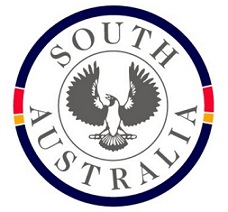South Australia updates rules on metropolitan shark fishing
 Media Release
Media Release
Primary Industries and Regions SA (PIRSA)
18. December 2012
—————————–
Note by SYM:
The following press release provides an update to the previous post from 14. Feb 2012 South Australia limits shark fishing from metropolitan beaches.
Update to metropolitan shark fishing rules
PIRSA Fisheries and Aquaculture has announced changes to the gear restrictions currently affecting shark fishing along the metropolitan coastline.
In February 2012, Fisheries Minister Gail Gago introduced temporary measures to restrict shark fishing from metropolitan beaches and jetties in a move to limit the level of interaction between recreational activities.
The arrangements have now been reviewed in consultation with representatives of the recreational fishing sector, including RecFish SA.
As a result of the recent review, it is now illegal to use any of the following:
- Any wire trace or a monofilament trace exceeding 1mm in diameter.
- Fishing hooks with a shank length exceeding 56mm.
- Fishing hooks with a gape exceeding 23mm.
- Any combination or gang of hooks which are joined by threading the point of one through the eye of another (unless separated by monofilament fishing line not exceeding 1mm in diameter).
The above gear restrictions apply daily between 5am and 9pm in the waters and adjacent foreshore areas between the southernmost breakwater at Outer Harbor to 4km south of Normanville Jetty, an area commonly known as Lady Bay.
Director Operations at PIRSA Fisheries and Aquaculture, Peter Dietman, said the amendments would come into effect immediately.
“The alterations to the restrictions will now allow fishers to target species such as rays, Snapper and Mulloway, while still restricting the ability for fishers to target and land sharks in metropolitan areas,” Mr Dietman said.
“These restrictions are in addition to existing fishing rules which prohibit the use of blood, bone, meat, offal or the skin of an animal as berley, as well as the use of wire trace of 2mm or greater gauge, and fishing hooks with a size of 12/0 or greater.”
Chairman of RecFish SA, Brenton Schahinger, said the changes had his support.
“RecFishSA has been proactive in working with Government to review the current arrangements,” Mr Schahinger said.
“While recreational fishing for sharks in South Australia has traditionally proven to be very compliant, the amendments will provide fishers with the flexibility to target other species, while still avoiding conflict with other users of our coastline by restricting the ability to target sharks.”
Mr Dietman said fishing rules were in place to minimise the risk of activities that may attract sharks to populated areas.
“At this time of year it is typical for sharks to become more visible in coastal waters as they follow aggregating fish populations, such as Snapper, into the gulfs,” he said.
“While their presence is not unexpected, it’s important that people exercise common sense and avoid activities that might attract sharks near populated swimming areas.”
While the risk of a shark attack is extremely low, Mr Dietman said there were many practical, common sense ways for water users to reduce the risk of shark interactions, including;
- Do not swim in areas where there are large schools of fish, dolphins, seals or sea lions.
- Do not enter the water if large sharks are known to be present.
- Do not swim alone or too far from shore, and avoid swimming at dawn, dusk or night.
- Always swim at patrolled beaches and stay between the flags.
- Avoid water being used by fishers, and where there are signs of bait fish or feeding activity.
- Never swim in murky waters, near a river mouth (especially after heavy rain), in channels, between sand bars or steep drop-offs.
- Do not enter or remain in the water if you have open wounds or are bleeding.
- Leave the water if schooling fish or other wildlife start to behave erratically.
Any shark sightings, where the shark poses an immediate danger to human life should be reported immediately to SA Police on 000.
Sightings of large sharks that do not pose a threat to human life can be reported to PIRSA’s FISHWATCH hotline on 1800 065 522 or online at pir.sa.gov.au/sharks.
Source: PIRSA
